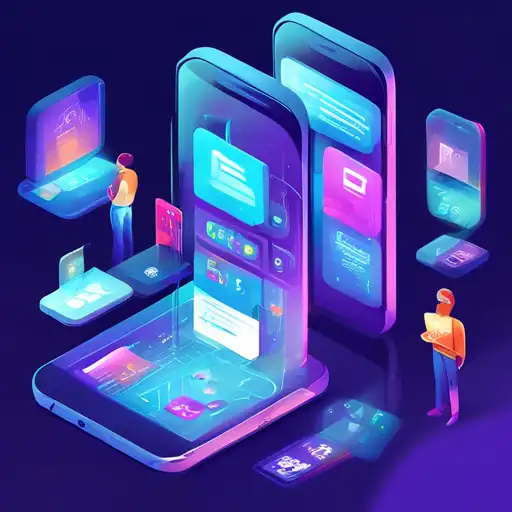Introduction to Mobile Development Trends
The mobile development landscape is continuously evolving, with new technologies and methodologies emerging at a rapid pace. As we look towards the future, several key trends are set to redefine how apps are developed and experienced by users worldwide. This article explores these pivotal trends, offering insights into what developers and businesses should watch out for in the coming years.
1. The Rise of 5G Technology
5G technology is poised to revolutionize mobile development by enabling faster data speeds and more reliable connections. This advancement will allow developers to create more sophisticated and data-intensive applications, from augmented reality (AR) experiences to real-time multiplayer gaming. The impact of 5G on mobile development cannot be overstated, as it opens up a plethora of opportunities for innovation.
2. Artificial Intelligence and Machine Learning Integration
Artificial Intelligence (AI) and Machine Learning (ML) are becoming increasingly integral to mobile apps, offering personalized user experiences and smarter functionalities. From voice assistants to predictive text and image recognition, AI and ML are setting new standards for what mobile apps can achieve. Developers are leveraging these technologies to create apps that learn from user interactions, thereby enhancing usability and engagement.
3. The Growth of Cross-Platform Development Tools
Cross-platform development tools like Flutter and React Native are gaining popularity, enabling developers to build apps for multiple platforms with a single codebase. This trend is not only reducing development time and costs but also ensuring consistency across different devices and operating systems. As these tools continue to evolve, we can expect even greater efficiency and performance in mobile app development.
4. Enhanced Focus on App Security
With the increasing amount of personal data being processed by mobile apps, security has become a paramount concern. Developers are now prioritizing secure coding practices and incorporating advanced encryption methods to protect user data. The future of mobile development will see a stronger emphasis on building apps that are not only functional but also secure from potential threats.
5. The Adoption of Internet of Things (IoT) in Mobile Apps
The integration of IoT with mobile apps is creating new possibilities for connectivity and automation. From smart home devices to wearable technology, mobile apps are becoming the central hub for controlling and monitoring IoT devices. This trend is expected to grow, with more apps being developed to interact with a wide range of IoT-enabled products.
Conclusion
The future of mobile development is bright, with numerous trends shaping the way apps are designed, developed, and used. By staying abreast of these developments, developers and businesses can ensure they remain competitive in this dynamic field. Whether it's leveraging the power of 5G, integrating AI and ML, or focusing on security, the opportunities for innovation are endless. The key to success lies in embracing these trends and exploring how they can be applied to create cutting-edge mobile applications.
